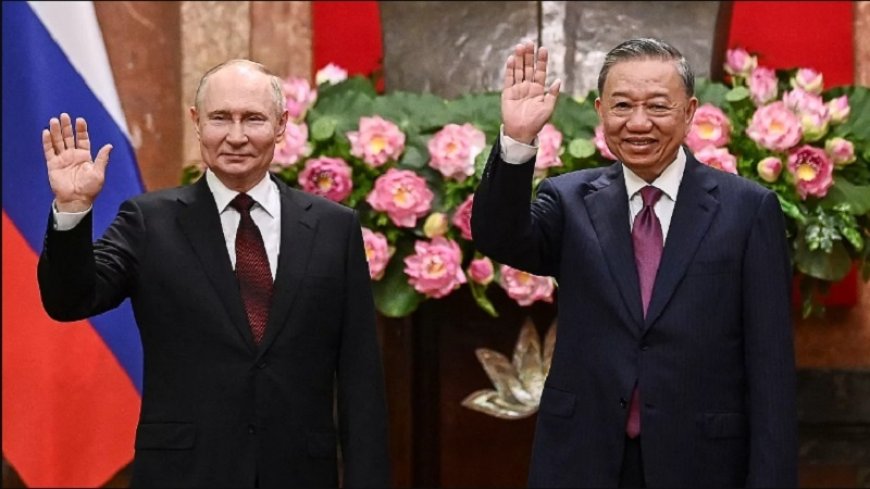Putin Prioritizes Strengthening Strategic Relations with Vietnam During Asian Tour
Russian President Vladimir Putin has declared that bolstering comprehensive strategic relations with Vietnam is a key priority for Moscow.

This statement came during his visit to Hanoi, the second stop of his three-day Asian tour, following engagements in Pyongyang, North Korea.After departing North Korea, where he was seen off by leader Kim Jong Un, Putin arrived in Hanoi and was warmly welcomed by Nguyen Phu Trong, General Secretary of the Communist Party of Vietnam. In addition to meeting with General Secretary Trong, Putin held discussions with Vietnamese President To Lam.
The visit resulted in the signing of 15 significant agreements across various sectors, including trade, investment, technology, and education. According to the Kremlin, these agreements aim to enhance cooperation in diverse fields between Russia and Vietnam. Among the signed documents were a declaration to deepen the comprehensive strategic partnership and a memorandum for the construction of a Nuclear Science and Technology Center in Vietnam.
At a press conference in Hanoi, Putin highlighted the enduring and equitable nature of Russia-Vietnam relations. "Our relations continue to develop based on the principles of equality and mutual respect," Putin remarked. He also noted the ongoing transition to national currencies in bilateral trade, underscoring the commitment to strengthening strategic ties.
During their discussions, both leaders reiterated their countries' dedication to developing robust and multifaceted cooperation. The agreements are expected to foster increased collaboration in scientific research, technological advancements, and economic exchanges, enhancing the bilateral relationship.
In a joint statement, Vietnam and Russia emphasized the necessity of halting the Israeli regime's attacks in Gaza, calling for a ceasefire and the establishment of an independent Palestinian state. This reflects both nations' shared commitment to addressing pressing international issues and promoting global peace.
Putin's visit to Vietnam underscores the strategic importance Moscow places on its relations with Southeast Asia. As global dynamics shift, Russia seeks to solidify its partnerships in the region, with Vietnam playing a pivotal role in this strategy.
The trip is part of a broader effort by Russia to expand its influence and forge stronger ties with key Asian partners. By focusing on mutual respect and equality, Russia aims to build enduring partnerships that can withstand global geopolitical challenges. The agreements signed during this visit mark a significant step forward in the Russia-Vietnam relationship, promising a future of closer cooperation and shared prosperity.













































